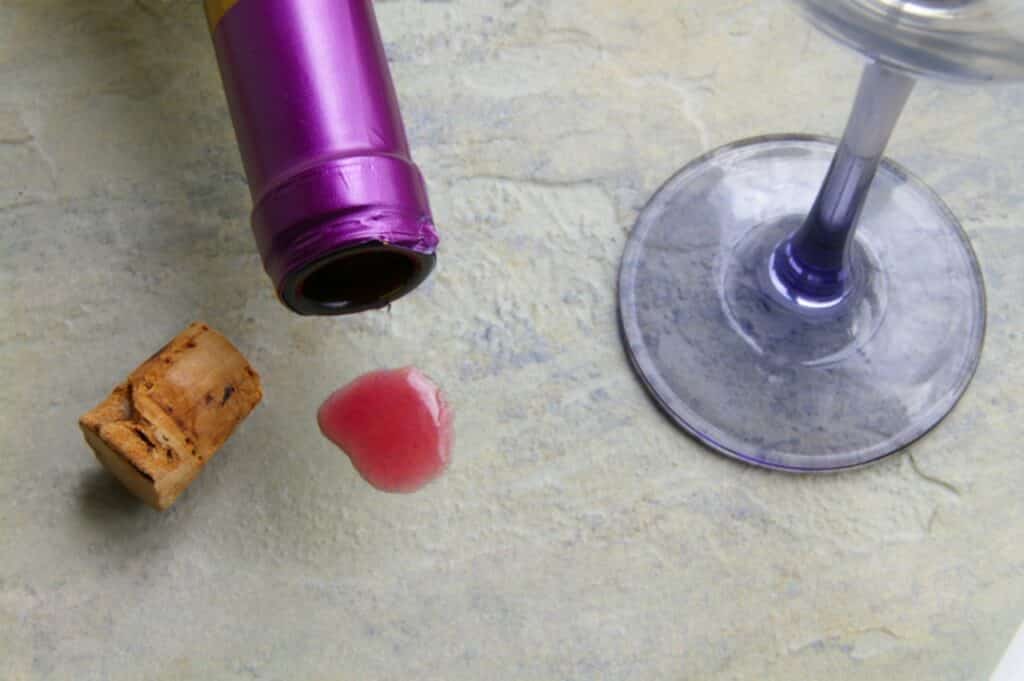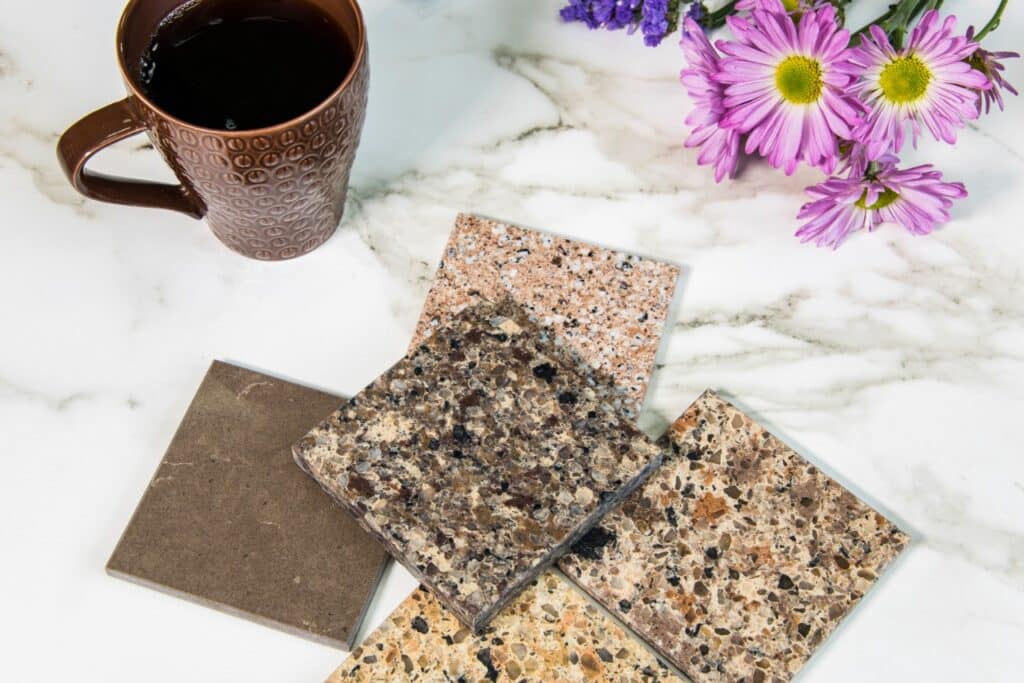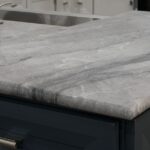Does granite stain? This is a question we get a lot these days, especially with quartz turning up to be such a huge hit and promising to be almost stain proof (which is not entirely true by the way).
Today we’re aiming at answering that question precisely. Now, if you’ve ever had a Granite countertop you should know exactly how resistant to stain it is, but even you will enjoy reading all about in which circumstances can a beautiful granite slab can get stained and how easy it is to completely avoid it.
To end it all well, we will still provide a short guide on how to remove stains from granite countertops. Let’s get started?
Stain resistance is one of the perks of granite, and keeping it well sealed is a good way to make that even better. Learn more in our definitive guide on granite countertops!
For the last time, does granite stain?
Yes. It is possible for a granite slab to be stained. By the way, we still never heard of a stain-proof countertop material. That’s why the question you should really be asking is: does granite stain easily? And that answer will be a no, it doesn’t.
To understand that let’s go into the details of how granite can be stained.
As all natural stones, granite is a porous material, nevertheless, it’s one of the less porous natural stones there are.
Porosity is the quality of having pores, or more clearly, being full of tiny holes. This characteristic is directly associated with water absorption. All natural stones can absorb water. However, what makes granite a good countertop pick is that it is only minimally absorbent.
This will be simpler to understand once we illustrate.
Liquid spilled on unsealed marble will be quickly sucked in by the stone, nevertheless, liquid spilled on unsealed granite will remain on the surface for a few minutes before being absorbed.
After that liquid is absorbed it will probably dry back out within a few minutes as well.
Staining on granite will happen when harder to dry or corrodent liquid is absorbed such as oils, grease, and strong acids. Even if that turns out to happen, it is still possible to “suck out” that stain with some techniques.
Now what really makes thins interesting and turns granite into a very low maintenance countertop material is that, when the stone is properly sealed, you don’t need to worry about it sucking liquids in.
Sealing is a process that involves applying an impregnating chemical to your granite countertops once every few years (for darker granite varieties, it may last more than a decade).
In order to know more about sealing and finding out when it needs to be done read our guide: “How to seal granite countertops”.
Common cleaning, wiping out spills when you see them, and sealing are the only maintenance granite requires in order to remain beautiful for a long long time.
The 10 substances more likely to stain granite countertops
As we’ve just explained, a properly sealed granite won’t have any trouble holding these substances above its surface for a long time so that you can clean them up.
With that said, these are the 10 substances that will most likely cause a stain on an unsealed granite countertop.
- Red wine (beware of glass rings)
- Blueberry juice
- Coffee
- Tomato juice
- Grape juice
- Mustard
- Ketchup
- Citrus
- Toothpaste
- Cooking oil

How to remove stains from granite countertops
If the worst has happened and your granite countertop is already stained, we will share a few things you can do to make it beautiful again.
First, you need to identify which kind of stain we’re dealing with.
Is it a stain or a damage?
Stains are discoloration due to the stone absorbing a staining agent.
If the staining agent is removed, the stain is gone.
A damage is a change in the natural chemical composition of the stone, mainly corrosion.
It can be typically caused by contact with acids such as vinegar or bleach.
You can’t remove damages, you will need to have the stone repaired by polishing, thus removing the damaged area.
Juice or water stain
If it is a juice or water stain, hydrogen peroxide can help. Mix 3 parts of the product and 1 part of water and pour the mixture over the stain, rubbing it with a cloth. If you can see results, repeat the process until achieving a good outcome.
Oil stains
For oil stains, you will have to make some poultice using baking soda and water. Mix 3 parts of the chemical and 1 part of water, your goal is to create a paste. Apply it over the stain and use a clean cloth to rub it. Check your results. After finishing rinse and clean thoroughly so that no residue continues of the poultice on the countertop.
If you’re dealing with a very resilient stain there’s one last thing you’ve got to try, using the same paste of baking soda and water, but this time you will leave it over the stain for a while. Here’s how it goes:
Apply the poultice to the stained area forming a ¼ to ½ inch thick coating. Extend this coating beyond the stained area by at least 1 inch. Cover it with plastic and tape it for sealing.
After 24 hours, remove the plastic and let the poultice dry for another 24 hours. The drying process is what pulls the stain out of the stone and into the material.
Then, remove the poultice, rinse it with water and buff dry with a soft cloth. Check how it affected the stain, it might take up to 5 applications to remove it thoroughly.
Damages
In order to completely remove damages from Granite countertops, you can always have it polished again.
Nevertheless, that’s not really a DIY technique, you will need to get in touch with stone pros.
Is granite the right choice for your kitchen?

If you’re looking for a beautiful, low maintenance, long-lasting countertop material, absolutely yes. Quartzite will also perform similarly.
The best way to choose your new countertop is still going to a stone yard and seeing the options by yourself. If you live in Sarasota or Bradenton, we will be more than happy to have you in our showroom. Don’t think twice, pay us a visit.



